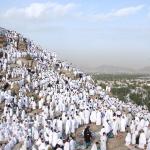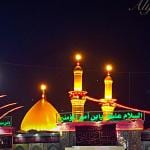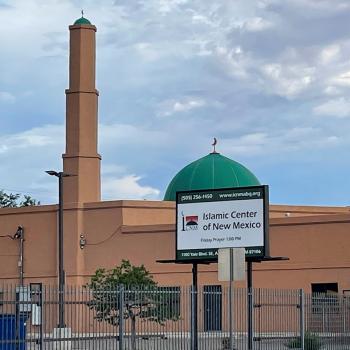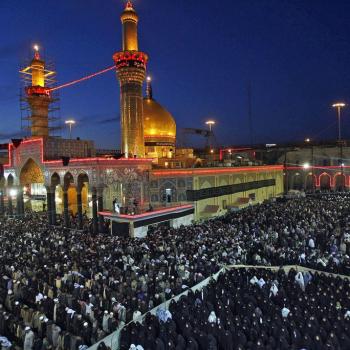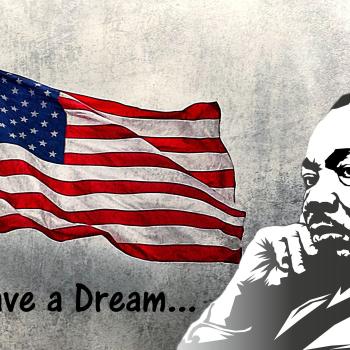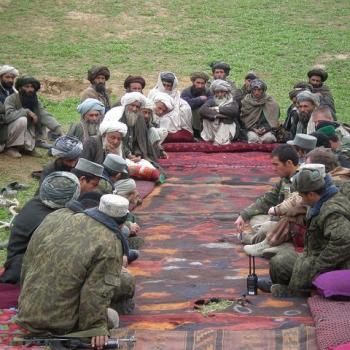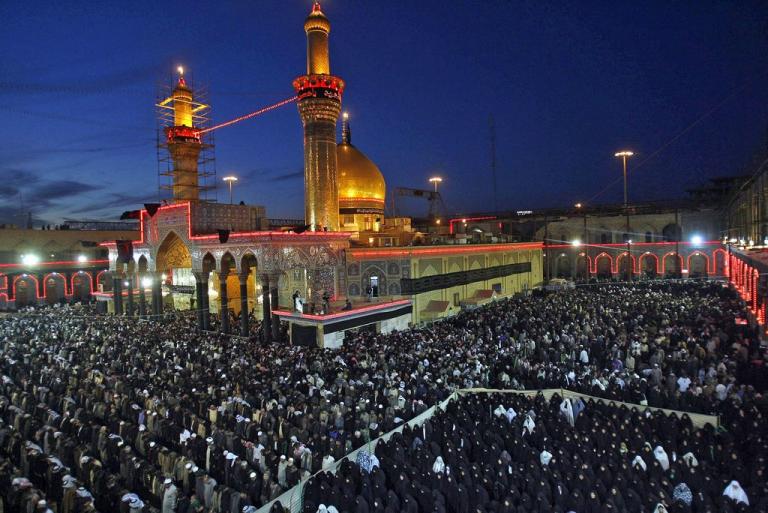 Once again I see “Happy New Year” , or “Happy New (Hijri) Year” greetings all over the social media with the moon sighting for Muharram, the first month of the Islamic calendar and the start of the Islamic Hijri year. But is the Islamic New Year a cause for celebration or a solemn reminder of an immense tragedy that befell the noble family of Prophet Muhammad in Karbala, and the lessons we learned from their sacrifice?
Once again I see “Happy New Year” , or “Happy New (Hijri) Year” greetings all over the social media with the moon sighting for Muharram, the first month of the Islamic calendar and the start of the Islamic Hijri year. But is the Islamic New Year a cause for celebration or a solemn reminder of an immense tragedy that befell the noble family of Prophet Muhammad in Karbala, and the lessons we learned from their sacrifice?
The Friday sermons and other religious programs do go over the sacred nature of the month of Muharram but almost never mention the tragedy of Karbala. Life goes on “normally”. This is mostly the state of the Sunni Muslim world.
On the other hand, Shia Muslims prepare for a month long (actually longer period) of daily programs commemorating the great sacrifice of Imam Hussain and the noble family of Prophet Muhammad. Muharram is almost synonymous with crying, shedding tears and other rituals to honor the great memory of Ahlul Bayt, People of the House (of Prophet Muhammad).
I continue to question as to why we have seemingly divergent paths in this sacred month. I also note that many, if not all, of Shia gatherings to commemorate tragedy of Karbala are Shia-only gatherings. Sunnis are almost never “invited”. All of this makes me wonder, and I find myself asking these questions:
Did Imam Hussain (also spelled Husayn and Hussein) sacrifice his life and the lives of his noble family for “Shias” only or for “Shia Islam”?
Is commemoration of the tragedy of Karbala a lesson for Shias only?
The Muslim world seems to be ever more divided between various sects. The tension between Sunnis and Shias across the globe is exemplified by the civil war in Syria, Bahrain, Yemen, and the Shia genocide (though no one seems to be willing to call it out) in many parts of the world, including Pakistan.
My Sunni brothers and sisters on the other hand, though acknowledging and respecting Imam Hussain’s sacrifice, seem indifferent- at least outwardly.
Why do the Shia gatherings not include Sunni brothers and sisters? Do the Shias have the monopoly on Imam Hussein, or the commemoration?
We should be united by our faith alone. We have more in common than any other religious groups. We are united by our faith and love for one God. We are united by our faith and love for the Holy Qur’an. We are united by the love for Salah and Ka’aba. We are united by our faith and love for Prophet Muhammad and his Sunnah.
The Qur’an’s call to Unity
And hold fast, all together, by the rope which Allah (stretches out for you), and be not divided among yourselves; and remember with gratitude Allah’s favor on you; for you were enemies and He joined your hearts in love, so that by His Grace, you became brethren…” 3:103
The lessons of Karbala
The sacrifice at Karbala by Imam Hussain, the grandson of Prophet Muhammad, and his family and companions against the army of the tyrant ruler Yazid was not meant for Shias only, or even Muslims only. It was a lesson for all of humanity. Through his sacrifice, he taught us how to stand up against tyranny, oppression and injustice.
Imam Hussain (As) witnessed the decline of morality and rise of corruption within the Muslim Ummah when Yazid took over as the Khalifa of the Muslim Ummah just about 50 years after the passing of Prophet Muhammad. Yazid was known for his immorality even back then. Given the high spiritual status of Imam Hussain, he sought his allegiance- essentially an endorsement for his corrupt life style and tyrannical rule.
Refusing to pledge allegiance to a tyrant was an easy choice for Imam Hussain as he stood strong in his convictions and adherence to the Sunnah of his grand father. He would not bow down to Yazid- even if it meant being butchered ruthlessly, and seeing his family- including his young son and the infant son being killed by the Yazid’s army.
Death with dignity is better than a life of humiliation. Imam Hussain
He knew after the martyrdom of all the male adults (except for his son Ali who was critically ill at the time), the women and children will be shackled and paraded through the streets of Iraq and Syria on the way to the palace of Yazid- in an apparent show of strength and to bring humiliation to the family of Prophet Muhammad.
This is when Sayyida Zainab, Imam Hussain’s sister and the grand daughter of Prophet Muhammad assumed the leadership of the remaining family of the Prophet. She addressed the on lookers lined up on the streets as the prisoners were paraded in shackles. She told the gatherings as to what actually happened in the desert of Karbala- a far and deserted land at the time in the present day Iraq. She told the crowds who they were, what they stood for and how ruthlessly Yazid’s army killed the family of the Prophet. She continued to speak out when the caravan reached the palace of Yazid and after their eventual release.
That to me was the start of the present- day “majlis”- the gatherings to commemorate the great sacrifice.
Click here to sign up to receive the newsletter for the fastest delivery of new posts.
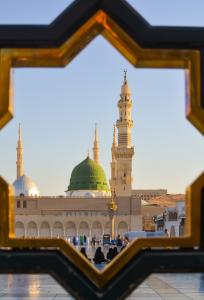 Yazid sought to wipe out the family of Prophet Muhammad and erase them from our memory. If it weren’t for Sayyida Zainab’s courageous efforts and standing up tall in the face of grave adversity, we may have never known as to what happened in the land of Karbala 1400 years ago.
Yazid sought to wipe out the family of Prophet Muhammad and erase them from our memory. If it weren’t for Sayyida Zainab’s courageous efforts and standing up tall in the face of grave adversity, we may have never known as to what happened in the land of Karbala 1400 years ago.
The Qur’an and Hadith on the love for Prophet’s family
…Say O Muhammad): I do not ask of you any reward for it but love for my near relatives. 42:23
The reward for “it” is a reference to his labor as a messenger of God. As to who the “near relatives” are is explained by Sahih Muslim, which goes on to say that the Prophet reminded his Ummah to hold onto the Holy Qur’an and members of his family. The description makes it clear who did the prophet referred to by “family members”.[1]
In many Hadith, Prophet Muhammad had called Ali, Fatima, Hassan and Hussein his family, such as: “…when the (following) verse was revealed:” Let us summon our children and your children.” Allah’s Messenger (may peace be upon him) called ‘Ali, Fatima, Hassan and Hussain and said: O Allah, they are my family.” [2]
Imam Hussein’s brother, Hassan was equally loved by the Prophet, as noted in numerous Islamic history books. It is reported that Prophet Muhammad would prolong his Sajdah (prostration) if Hassan or Hussein(toddlers at the time) would get on his back. In reference to Hassan, Prophet Muhammad had this to say:
“O Allah, behold, I love him. You too love him and love one who loves him.”[3]
Few other Hadiths from Prophet Muhammad reflecting his immense love for the two brothers:
• Hussein is from me and I am from Hussein.
• Hassan and Hussein are the leaders of the youngsters of paradise.
• Those who love him, love me, those who are his enemies are my enemies. (Narrated by Abu-Huraira)
I heard Rasulullah (messenger of God) say ‘Verily my son [Hussain] will be killed in a land called Karbala, whoever amongst you is alive at that time must go and help him.[4]
One who fights Hussain, fights the Prophet.[5]
Note that none of the references quoted here are from “Shia” sources, hopefully eliminating any bias Shia scholars and historians may have. In addition to the Hadith, many notable Sunni Muslims have shown their admiration for Imam Hussein and the tragedy at Karbala.
Muharram beyond mourning
On one hand I see my Sunni brethren almost completely aloof to the tragedy and the the sacrifice of the family of prophet Muhammad. On the other hand, I see my Shia brethren almost completely immersed in rites and rituals of the month of Muharram, rather than reflecting on the deeper meaning of this great sacrifice.
I understand that there are different ways to express mourning and in fact the lessons from the tragedy of Karbala go way beyond mourning. The tragedy of Karbala taught us all that we should not be afraid of speaking the truth, stand up to oppression and tyranny, be steadfast when facing adversity, fight for justice and be kind to everyone including our enemies. Let the tragedy of Karbala and the sacrifice of Imam Hussain be a source for Muslim unity, not division.
One must look past the rites and rituals to see the deeper meaning of the sacrifice. Imam Hussain did not sacrifice his life and the lives of his loved ones to draw focus on to himself. He sought to protect the values of Islam and prevented Islam from getting polluted. It is a time for reflection and reaffirmation of our faith in God and Islamic values and principles.
I am not against the rites and rituals or show one’s emotions, but that show of emotions cannot be at the expense of taking time to ponder over how we must use his example to strengthen our faith in One true God and His message.
Back to celebration vs commemoration question:
As a physician, I see many patients who have lost their loved ones including children. As the anniversary of the death of their children and other loved ones approaches, they experience sadness, not just on the day of their death anniversary but even at the beginning of the month they passed away, as they get flashbacks and the memories of their loved ones. If the death anniversary fell on January 1st, they do not celebrate New Year’s as the memories of their loved ones overshadow the celebrations.
Similarly, in America, very few people now celebrate birthdays if they fell on September 11. Why? Because it may have been a joyous occasion before 2001, but since then it has become a solemn day.
If we claim to really love Imam Hussain, just like the Qur’an and our Prophet Muhammad ask us, should the sadness not enter our hearts as we approach the anniversary of his ruthless martyrdom?
Yazid sought to wipe the progeny of Prophet Muhammad out by butchering all the adult males, yet his plans failed miserably as the memory of the tragedy of Karbala remains alive in the hearts of the lovers of Ahlul Bayt. If it wasn’t for the hard work of a small minority of Muslims, and if we continue to be indifferent as we approach Muharram, the sacrifice of Karbala would have been largely forgotten within couple of generations. Do we want to (unintentionally) contribute to the efforts of Yazid by treating Muharram like any other month and pretend nothing happened to the Prophet’s family?
We cannot claim to love Prophet Muhammad and Imam Hussain, and then ‘celebrate’ New Year, rather than commemorate and pay homage to his great sacrifice. The intensity of our commemoration has to match our love for them and the great sacrifice at Karbala.
Click here to sign up to receive the newsletter for the fastest delivery of new posts.
PS: This post is adapted in part from a past post from September 1, 2019.
References:
[1] Sahih Muslim, Book 031, Number 5920
[2] Sahih Muslim, Book 031, Number 5915
[3] Sahih Muslim, Book 031, Number 5951 and 5953
[4] Khasais al Kubra Volume 2 page 125 (Maktaba Nurree Rizvi Publishers, Pakistan This same narration can be located in the following books by Sunni authors:
1. al Isaba Volume 1 page 81 Dhikr Uns bin Harith
2. Tareekh ibn Asakir Volume 4 page 341 Dhikr Husayn
3. Kanz ul Ummal Volume 6 page 223 Dhikr Husayn
4. Sirush Shahadathayn page 80
5. Kifayath al Talib page 429 Dhikr Husayn
6. Neel al Authar page 88
7. Dhukhayt al Uqba page 146
[5] References from the following:
1. Adhaab al Mufraad page 17
2. Sunan ibn Majah page 14, Manaqib Husayn
3. Sunan Tirmidhu Volume 2 page 587 Manaqib Husayn
4. Dhukayr al Uqba page 133 Dhikr Husayn
5. Sawaiqh al Muhriqa page 114 Dhikr Husayn
6. Ya Nabi al Mawaddath page 164 Chapter 54
7. Jama al Usool Volume 10 page 21
8. Mustadrak al Hakim Volume 3 oage 177
9. Kanz al Ummal Volume 6 page 220 Manaqib Husayn
10. al Fusl al Muhimma page 171 Dhikr Husayn
11. Ahsaaf al Raghibeen page 175 Dhikr Husayn
12. Nuzool al Absar page 55 Dhikr Husayn
13. Murqaath Sharh Mishqaath page 55

